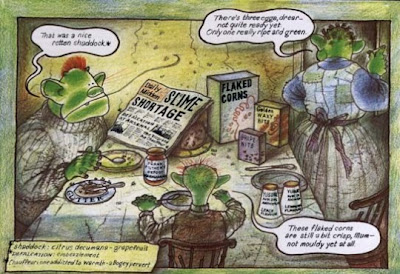Yesterday, somebody posted a video of 80s songstress Kim Wilde and her brother Ricky drunkenly performing two of her old hits on a commuter train coming out of London. It went, as they say, viral, as the YouTube clip migrated to Facebook, Twitter and then to the mainstream media.
What was its appeal? Three things, I think. One is a persistent affection for Ms Wilde herself; never a great singer in a technical sense, she has forged a career with a combination of looks, charisma and self-deprecating good humour. She’s a trouper, a sex symbol who’s also one of the lads. If an American equivalent of Kim Wilde (Debbie Gibson? Cyndi Lauper? Tiffany?) had started belting out her back catalogue on the New York subway after a few too many tequilas, she would have been in rehab by the time the networks got hold of it. Not in Britain. So Kim Wilde likes a pint. What’s not to love?
The second is that the clip reinforces a stereotype about the uptight British not wanting to get involved, not wanting to join in, not wanting to show themselves up, especially on public transport. One or two of her fellow passengers get the joke (
“It’s actually her!”), a few join in with the chorus (
“Woh-oh!”) but those in camera shot just try to pretend the whole thing’s not really happening. Although to be fair, maybe some of them were too young to have remembered Kim in her hit-making days. Or maybe they were foreign. If they are going to rewrite the test that newcomers to the UK have to take before they become citizens, perhaps they ought to demand a knowledge of the lyrics of ‘Kids in America’. Or, as I’ve long argued, the theme song to
It Ain’t Half Hot Mum, complete with bellowed
“SHUT UP!” and sitar obbligato.
But ultimately it fits the modern mood of Christmas, the bitter, battered, rueful,
‘Fairytale of New York’ attitude. Kim could have been someone, but instead she’s (metaphorically at least), the old slut on junk and Ricky’s the scumbag, the maggot; while Beyoncé might be sipping Moët in the back of a limo with Mr Z, Kim’s on the train, a bit pissed, wearing antlers, with her bald, chubby brother, and she gets off at Potters Bar. Happy Christmas your arse.
Anyway, whatever the reason, the clip became popular.
“This is the best thing on the internet, ever,” typed some.
“Made my day,” was the more restrained response of others. And then, pretty soon, people were taking to Twitter to say how bored they were of Kim Wilde drunk on a train and they wished their friends would stop posting the link. We’re talking minutes, not hours; not even
‘Gangnam Style’ became so annoying so quickly. And at about the same time, I started to wonder aloud – and I’m sure I wasn’t the only one – whether the whole thing wasn’t just a stunt staged for the benefit of the radio station where she works. The person who
posted the clip, who supposedly just happened to be in the carriage at the same time, specifically mentioned that the Wildes are on the way back from the Magic FM Christmas party. How did she know? In any case, why should she mention such a thing unless it’s all part of the publicity game? When Ms Wilde took to Twitter to admit that she was recovering from her exertions, she also took the trouble to
keep the message on-brand. Something apparently so spontaneous, so daft and fun, was just another cold serving of capitalism gruel; in Situationist terms, an act of
recuperation. It was that moment when you realise a flash mob is an advert with ideas above its station. Happy Christmas right up your arse.
So the needles were already beginning to fall from the tree, even as the horrible news started to trickle in from
an elementary school in Connecticut. And at that point, we all got off at Potters Bar.
PS: The Daily Mail even mentions the radio station in the bloody headline. Which suggests that they know it’s a stunt, but they’re quite happy about the fact.



































